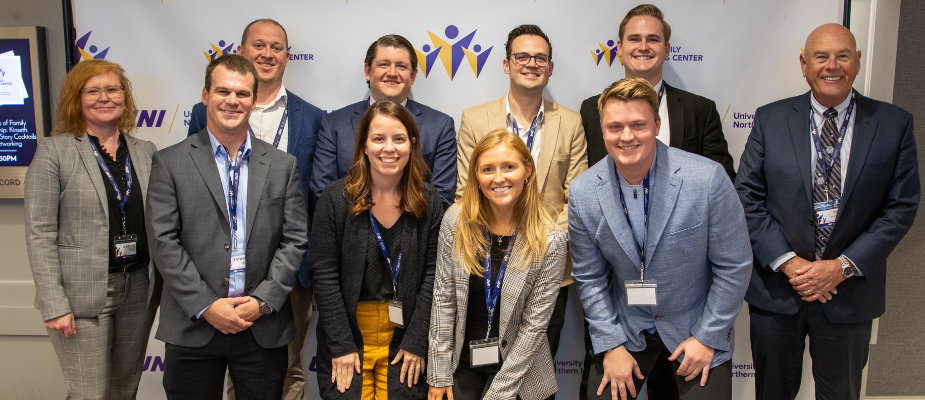Family businesses play a vital role in Iowa's economy
Family businesses play a vital role in Iowa's economy

Tony Simmons, former President and CEO of McIlhenny Company, showed up in Des Moines and ‘kicked it up a notch’ at the second annual Iowa Family Business Conference presented by the University of Northern Iowa Family Business Center. The event featured a keynote address from Simmons about his time growing up in and leading McIlhenny Company. He might be from Avery Island, Louisiana, but his story focused on what we know all too well in Iowa: family businesses are different.
Challenges Family Businesses Face
Only 30% of family-owned businesses survive the transition to the second generation. Moving leadership from a business founder to multiple siblings or cousins introduces challenges and complexity most families struggle with.
The Iowa Family Business Conference is designed to tackle a number of these challenges in a one-day event so families can learn, share and spend time with their family members away from the chaos of the normal work environment. The conference also provides an opportunity for families to connect and network with other families facing the same challenges and learn various ways to handle them (and in some cases, how NOT to handle them.)
Generational succession planning is one of those key challenges, if not the most important. Some transitions are well prepared while other times when plans have not yet been put in place. Hearing from Iowa families about how they have navigated their generational leadership and ownership succession can be incredibly beneficial to others who are, or will be, managing the change. The struggle is real, as they say, in terms of one generation letting go and a new generation taking control.
In his keynote address, Simmons, a fifth-generation retired leader of the iconic Tabasco Pepper Sauce maker, identified how intentional his family has been to keep alive the story and legacy of the founder of their firm. When asked how a business survives to the fifth, sixth and seventh generations of ownership, he had such a simple yet powerful thought on that: you have to take care of the business, first and foremost. The family has to gather around the mantra, what is good for the business is good for the family.
Family Businesses Contribute to the Overall Iowa Economy
Family businesses are the engine for Iowa’s rural and urban economies. Based on national statistics, they drive 78% of all new job creation and are responsible for almost 55% of GDP. In part because of their important positioning in the state economy, the UNI Family Business Center wants to help these families tackle tough challenges and help them stay sustainable.
Landon Geater (2011, Business Management), executive vice president of Geater Machining & Manufacturing in Independence, IA, recognizes the importance of family businesses in the state. “Seeing the role that Geater plays as a family business in Independence and Iowa has been one of the biggest rewards. Contributing to people’s livelihood, supporting the Independence community, and supplying products that not only help other Iowa businesses but have an international impact is a proud feeling for my family and me,” said Geater.
Family businesses are a vital part of Iowa’s economy, driving job creation and contributing to GDP. However, these businesses face unique challenges, particularly in the area of generational succession planning. The Iowa Family Business Conference provides a valuable opportunity for families to learn from each other and tackle these challenges together. By prioritizing the needs of the business and fostering a culture of intentionality, family businesses can thrive for generations to come, benefiting not only themselves but their communities as well.




